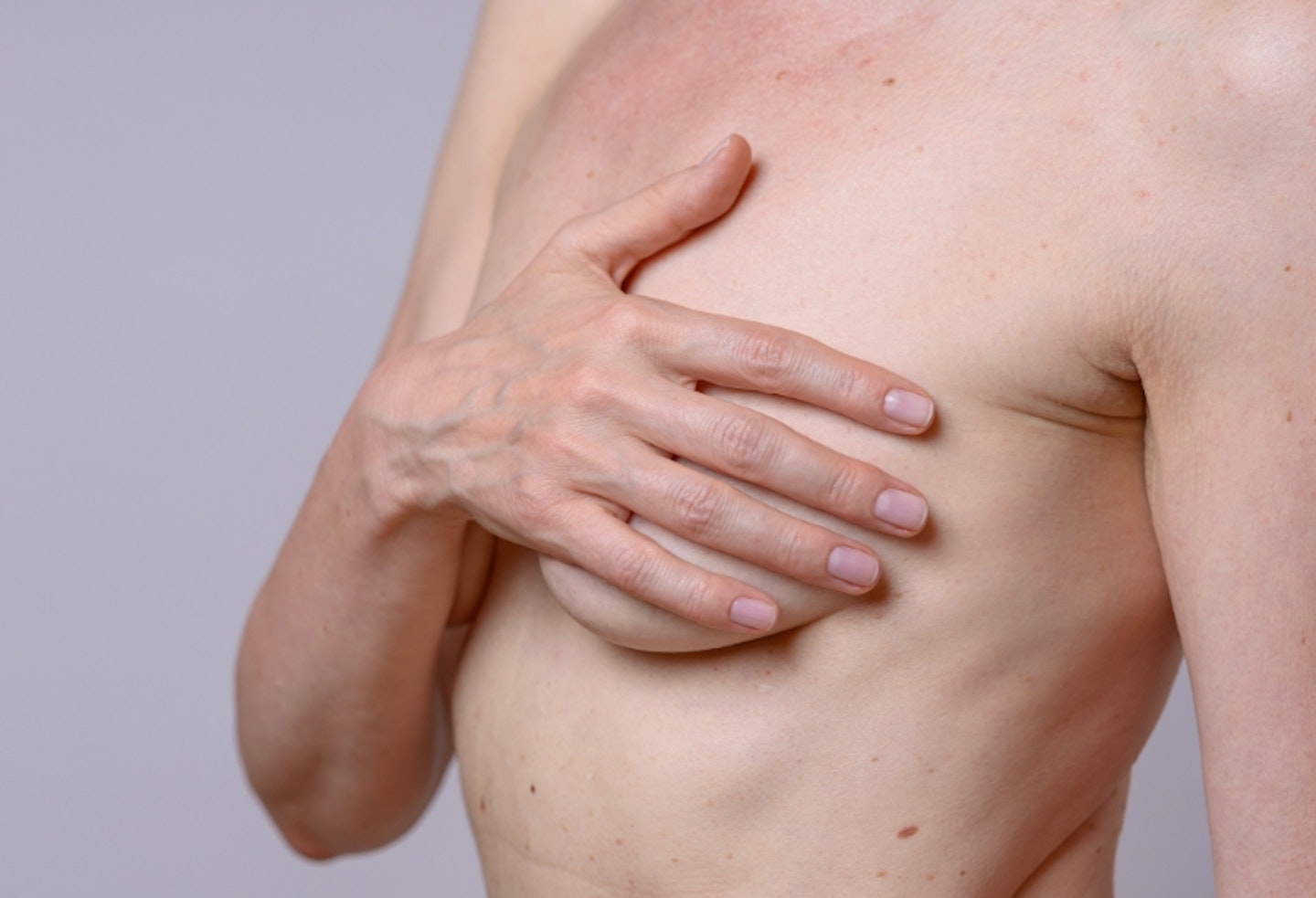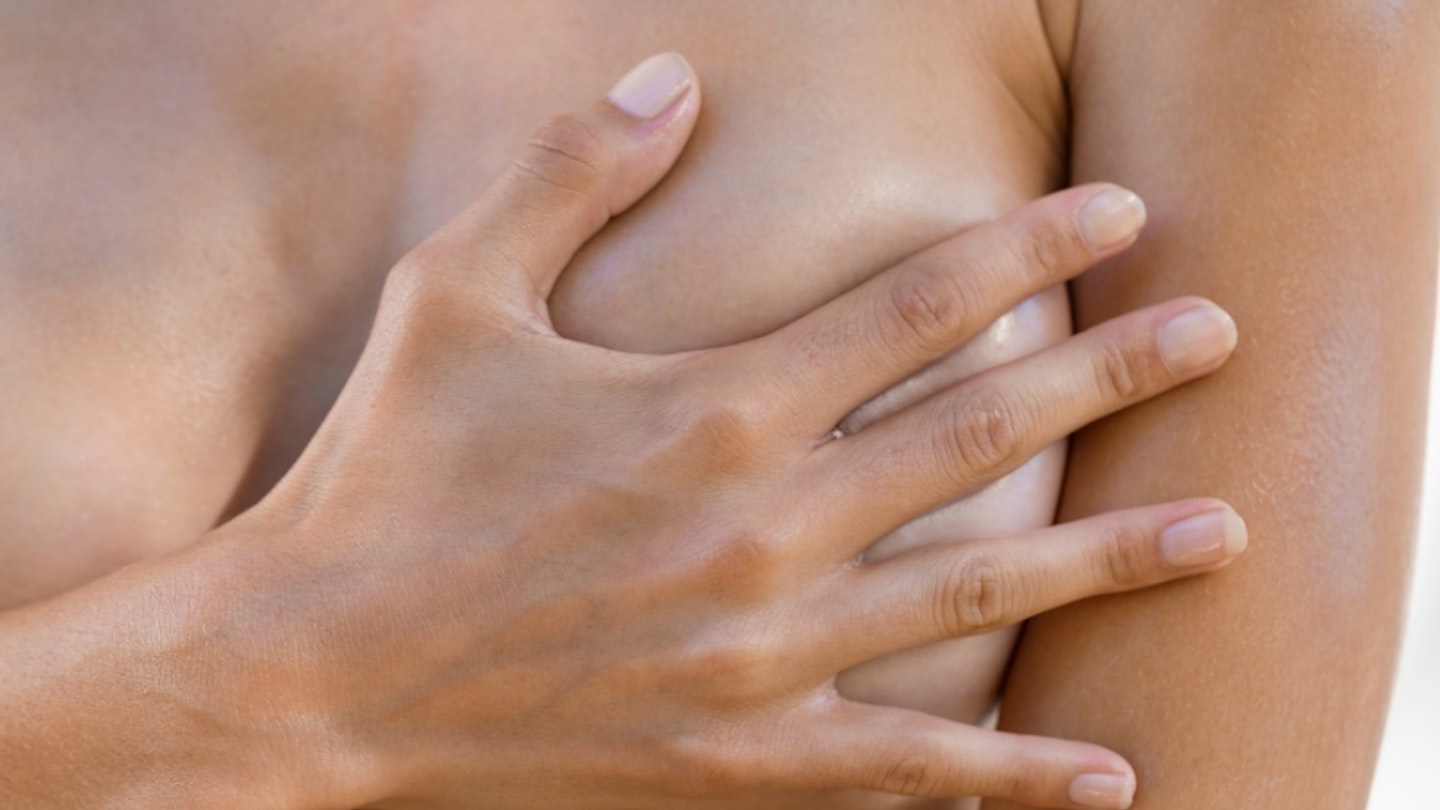Pregnancy causes your body to change in all sorts of ways. When you look in the mirror, you might start to notice subtle changes in areas you weren't quite as prepared for. Alongside other physical pregnancy side effects like morning sicknessand stretch marks, your areola (the skin around your nipples) may suddenly appear darker or Montomgery glandsmay appear.
Although this change in nipple colour might be very noticeable to you, remember that everyone's body is different and it should not be something that makes you feel self-conscious. It is important to be kind to yourself, as pregnancy can also take its toll on you mentally by causing fatigue, stress, anxiety and mood swings.
To put your mind at ease, here's everything you need to know about darker nipples during pregnancy - whether they are common, what causes them, will they fade and is there anything you can do about it?
Are darker nipples common during pregnancy?
The areola, the hyper-pigmented area surrounding the nipple, often becomes darker during pregnancy and it is a common side effect. Most women find that their breasts change in some way throughout pregnancy. As well as darkening, your nipples could become larger and your breasts may increase in size or become tender. Some women find their nipples develop bumps on the areolas which are called Montgomery’s tubercles. These bumps are sebaceous (oil) glands which lubricate the nipple to ease the process of breastfeeding and protect your baby from germs.
What causes nipple darkening during pregnancy?
It is unclear exactly what causes nipples to darken during pregnancy. However, as with all changes that occur during pregnancy, it is likely to be down to your hormones. Hormones are responsible for helping the body grow and adapt to effectively prepare you for carrying and giving birth to your baby. During pregnancy, hormones appear to cause an increase in the production of melanin, the pigment which makes our hair, skin and eyes darker.
The areas which are most affected by this increase in melanin, are parts of the body where the pigment is already present in high quantities, such as the areolas. From an evolutionary perspective, some believe that the body causes an increase in melanin and the subsequent nipple darkening so that the baby will easily spot the nipple for breastfeeding even before their eyes are fully developed.
During pregnancy, some women find their body develops dark patches in other areas, often scars of freckles. Another key example of skin darkening during pregnancy is melasma which is otherwise known as the pregnancy mask. Melasma (from the Greek word “melas” meaning black) is hyperpigmentation or discolouration of the skin, with dark brown, greyish or tan-coloured patches covering the face. Another skin darkening condition caused by increased melanin is the linea negra. The linea negra is a dark vertical line that appears on your belly during pregnancy. Although they may seem alarming, these skin changes are common, perfectly normal and nothing to worry about.

If you're not pregnant and you notice your nipples appear darker, there are some other common causes to be aware of.
-
oral contraceptives - the birth control pill contains the synthetic hormones estrogen and progesterone, which can cause a change in nipple colour.
-
menstruation - your menstrual cycle is driven by changes in hormone levels, which again, can result in darker nipples, your breasts feeling more tender and swelling.
-
puberty in girls - when a young woman is going through puberty her estrogen levels spike and it's these hormone changes that cause breasts to grow. During this process the nipples can undergo changes too, such as darkening.
-
breastfeeding - this is down to the change in hormone levels that help you to produce milk. It's not known why this happens, but some experts believe it is to help your baby find your nipple area quicker.
In some rare cases, a darkening of the nipple can be a sign of Paget’s disease, a rare form of cancer which begins in the nipple area. It's more common in older adults, but if you are concerned, speak to your GP.
Do dark nipples fade after pregnancy?
In most cases, dark areolas will fade back to their original colour after pregnancy. It is unlikely to be immediate but it should happen during the first few weeks and months after you give birth. However, for some women, changes which occur during pregnancy may become permanent. If you decide to breastfeed, this may also cause changes in your breasts and nipples. Breasts and nipples may become more sensitive, sore, cracked and you can develop thrush.
Is there anything I can do?
As the darkening of your nipples and skin is caused by an increase in melanin, it is important you stay safe in the sun. The NHS recommends mums-to-be always use a high SPF sunscreen as your skin is more sensitive to sun damage. If you are in a hot climate, seek shade where possible and make sure you stay hydrated. Hot weather can cause overheating and dehydration, as pregnant women's bodies are already at a higher temperature as they pump blood around the body for the baby. If you do get hot and flustered, make-up and skincare expert Joyce Connor recommends using "cooling thermal water which helps to soothe irritation on the skin and keep you cool".
Using pregnancy safe skincare and beauty products is important. This will ensure you are using products that are not only safe for you and your skin but your unborn baby too. You do not want to irritate the skin or make it inflamed which could make the skin appear darker. You can use concealer to cover dark patches if they make you feel insecure.
